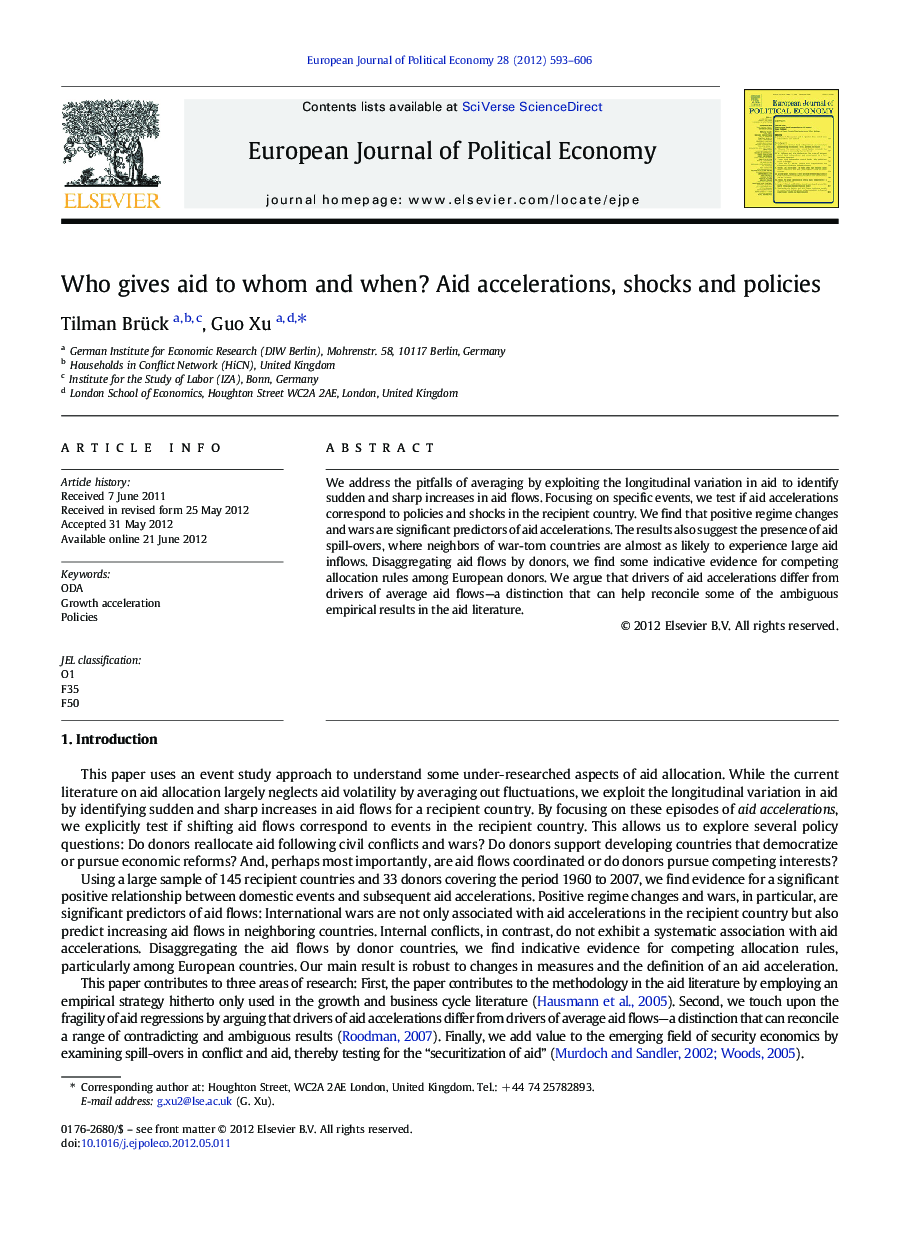| Article ID | Journal | Published Year | Pages | File Type |
|---|---|---|---|---|
| 5068141 | European Journal of Political Economy | 2012 | 14 Pages |
We address the pitfalls of averaging by exploiting the longitudinal variation in aid to identify sudden and sharp increases in aid flows. Focusing on specific events, we test if aid accelerations correspond to policies and shocks in the recipient country. We find that positive regime changes and wars are significant predictors of aid accelerations. The results also suggest the presence of aid spill-overs, where neighbors of war-torn countries are almost as likely to experience large aid inflows. Disaggregating aid flows by donors, we find some indicative evidence for competing allocation rules among European donors. We argue that drivers of aid accelerations differ from drivers of average aid flows-a distinction that can help reconcile some of the ambiguous empirical results in the aid literature.
⺠Regressing period averages is inadequate for the case of aid. ⺠We use the longitudinal variation to identify sudden and sharp increases in aid flows. ⺠We identify 215 aid accelerations between 1960-2008 for a sample of 145 countries. ⺠Positive regime changes and wars are significant predictors of aid accelerations. ⺠Disaggregating the aid flows, we find evidence for competing aid allocation rules.
